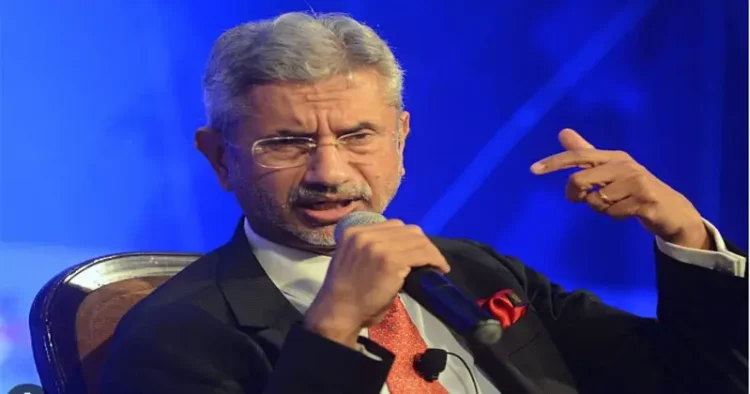External Affairs Minister S Jaishankar’s bold statement about the Western media marks a fresh chapter in the ongoing tussle between India and certain Western media outlets, raising crucial questions about media representation and the battle for control of global narratives.
Jaishankar, addressing a conference in Bengaluru, highlighted the challenges of challenging established narratives, stating, “The battle of narratives is something one should expect while challenging the entrenched narrative.” He further emphasised the need for India to actively counter these narratives: “We have to tell our own story. We have to tell it factually and objectively, but we have to tell it.”
This pushback against Western media comes amidst concerns about how India is often portrayed in international news. Critics argue that Western media outlets frequently highlight negative aspects of India while overlooking its significant achievements and progress. This, they claim, reinforces an unfair and incomplete picture of the country.
Speaking at the Golden Jubilee celebration of the PES University in Bengaluru on Friday, the External Affairs Minister said, “In the press freedom, they gave us a lower ranking than Afghanistan. The battle of narratives is something we should expect because we are defying the entrenched narrative… It’s happening in different domains… It’s been steadily building up for the last 10 years. I expect it to reach a Crescendo in the first 6 months of this year… As the elections come closer…they will actually start to attack the process if it looks like it’s going a way in which the narrative drivers don’t like… They will attack the Supreme Court and Election Commission.”
“We’ve got to figure this out and we have to fight back… We need to call them out and that is part of this whole narrative contest… On the technology issue, it’s far more complex… You have big giants who have the clout and influence which are bigger than many countries… Would you trust your data with players who are back-ended out there?… Today there are serious debates about trust and transparency where would you like to see your data,” Jaishankar added.
Speaking on his newly released book ‘Why Bharat Matters’ at the Golden Jubilee event on Friday, he added that the world today wants a country like India to “balance out the established powers”.
“Today, we are spreading our wings. The world actually wants a country like ours today to balance out the established powers,” the EAM said.
On the difference between the pre and post-Modi era foreign policy, the EAM said the “answer is the new way of thinking.” “For example, to take our neighbourhood and make them partners, not competitors who envy you but neighbours who benefit from you… Our neighbours today associate India with education and health… They see the new power linkages… We are recapturing our history… If you go by archaeology, in the middle of Vietnam there are Shiv temples thousand years old… Look at the gulf, till the ’60s and 70s, the Indian rupee was a legal tender in some of these countries… We let go of these connections as we had a smaller view of ourselves,” the External Affairs Minister said.
He added that India was today holding its ground, “whether it is a complicated issue like the conflict in Ukraine and the pressures that come with it, or whether what has been happening in the Indo-Pacific and how do we ensure that there is stability and there is order… There were pressures on us to not do the Quad. There were pressures on us to restrict our economic dealings with Russia. We stood firm against both.”
Weighing in on India’s prickly ties with its eastern neighbour, China, Jaishankar shed light on the historical nuances of the relationship while providing an informed perspective on how a more ‘Bharat-centric approach’ could have shaped the nation’s view of its ties with Beijing differently.
“If we had been more Bharat, we would have had a less rosy view of our relationship with China,” Jaishankar said, delving into India’s historical perspectives on its relationship with China.
Jaishankar’s call to action resonates with a growing sentiment within India, where citizens are increasingly aware of the power of narratives and their impact on global perceptions. The rise of social media and alternative news platforms has further empowered Indians to challenge traditional media narratives and promote their own perspectives. (With Inputs from ANI)


















Comments